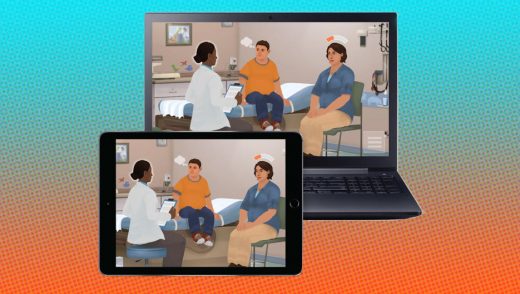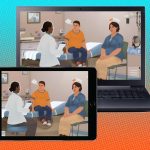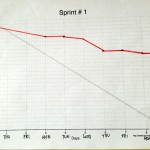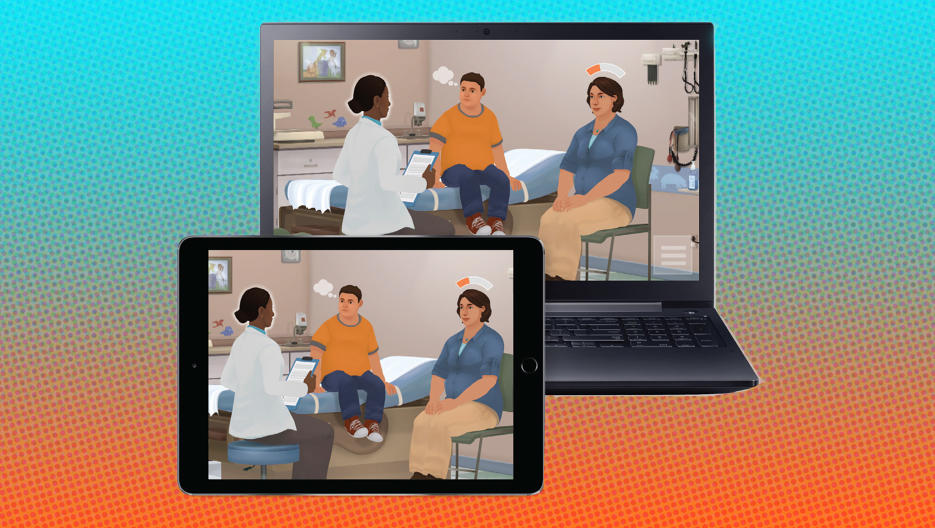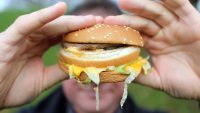This App Helps Doctors Talk To Families About Obesity
In the United States, more than 12 million children and adolescents are obese. But few medical schools across the country are teaching would-be doctors how to broach the issue of weight management with patients and their families, leaving them unprepared.
That’s where simulation-technology comes in. Change Talk 2.0, a role-playing game developed by the app maker Kognito and , is intended to help doctors practice having these sensitive conversations.
After downloading the app, doctors and medical students enter into a hypothetical clinical scenario, pose a question, and then get feedback from a virtual family about the interaction. The newly released second version of the app isn’t solely focused on childhood obesity: It also includes scenarios related to breastfeeding and healthy snacking habits.
Since its launch in 2014, the first version of the app had some 30,000 users. It’s demonstrated some success at training doctors, although it remains to be seen whether patients are thriving over the long term. A case study from The American Academy of Pediatrics found that 93% of physicians surveyed intended to make a change to provide better health care after using the simulation. After a one-month follow up, 88% did make the changes they indicated.
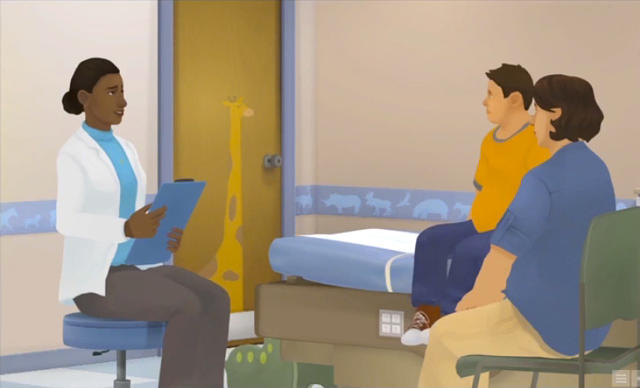
The adoption of apps like Change Talk 2.0 hints at the potential for more sophisticated technologies like virtual reality to be used in health care. It’s still early days, but many in the medical sector see potential for VR to be used to help doctors practice their surgical techniques and refine their bedside manner before interacting with real patients.
“What we’re trying to do is meet the family where they are, rather than be prescriptive,” says Christopher Bolling, a pediatrician who helped devise the app with a team of fellow doctors and dietitians.
According to Bolling, users are rewarded for asking open-ended questions to gauge what some of the problems might be for the family, whether it’s a lack of physical activity or too many sugary drinks in the home. This technique is known as “motivational interviewing.” Change Talk 2.0 might not be as sophisticated as virtual reality, he explains, but it’s effective at training doctors because it was built by them.
Jay Parkinson, a pediatrician and entrepreneur who wasn’t involved in the making of the app, says that the most important criteria is the user experience—not just whether it was developed by clinicians. “If an app has a decent UI, it’s going to be effective,” he says. But Parkinson also warns that some doctors are simply less emphatic than others, and a decent bedside manner can’t always be learned via an app. “Some physicians,” notes Parkinson, “are very bad at anything but pills and scalpels.”
Fast Company , Read Full Story
(35)

